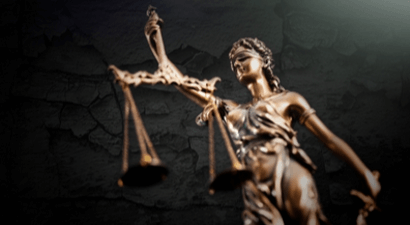CELLPHONE SEARCH AND SEIZURE: TO WHAT END CAN THE COMPETITION COMMISSION EXERCISE ITS POWERS?
We know it’s true: we spend too much time on our cellphones. According to a report by Electronics Hub in 2023, found here: https://www.electronicshub.org/the-average-screen-time-and-usage-by-country-in-2024/, South Africans spend 58% of their time staring at their screens, more so than any other country. Are we really to blame though? After all, I can rely on my cell phones (yes, I have two) to wake me up, help me get a last-minute birthday gift delivered, pay for my mid-morning coffee and help me arrive at my destination using the fastest route possible. Then, true to its core purposes – I use my phones to communicate with friends, family and annoying telemarketers trying to sell me life insurance at the most inopportune moment.We hear the common phrase “My phone has my life on it” and often, that will encompass your work life too. Work emails, telephone call logs and Whatsapp chats with suppliers and/or customers and your chats from your team’s chat group are likely to be nestled in your personal cell phone too.
I recently conducted training on the extent of the Competition Commission’s (Commission) powers to “search and seize” in the event of a dawn raid at a client’s site. During the session, an audience member raised a concern when I explained that even the employees’ cell phones, which were not issued to them by their employer, could fall within the reach of the Commission as part of their investigation into their employer’s conduct.After all, he protested – what about his right to privacy and similar protections afforded to him in this “POPIA age”?
Dawn raids (so named as they usually performed in the early hours of the morning and without prior notice) are conducted by investigators of the Commission on businesses which they suspect are engaging in uncompetitive business practices and in contravention of the Competition Act No 89 of 1998 (Act). Dawn raids are stressful affairs for all employees of the businesses involved: from the receptionist to the CEO.Because they are disruptive in nature, cooperation with the investigators is key to minimize that interruption on the company’s business operations.
The Commission has the authority in terms of sections 46 and 47 of the Act to conduct search and seizure operations on a company’s premises with or without a warrant. In terms of section 48 of the Act, the investigator may be accompanied and assisted by a police officer and is authorised to examine or take extracts of any article or document that is on the premises and that has a bearing on the investigation. They can also use any computer system on the premises to search any data as well as seize any output from that computer for examination and copying. And then, for good measure, they have an all-encompassing power to “attach and, if necessary, remove from the premises for examination and safe-keeping, anything that has a bearing on the investigation.” Whilst section 49 of the Act states the investigators must conduct the entry and search with strict regard for decency and order, and with regard for each person’s right to dignity, freedom, security and privacy, it goes onto say that the police assisting with the investigation can use as much force as “reasonably required” to overcome resistance. As I said, cooperation is key.
So where does an individual’s rights to privacy and the protections of POPIA come in? In terms of the Constitution, section 14 of the Bill of Rights provides that everyone has the right to privacy, which shall include having the right not have their property searched, not to have their possessions seized, nor have the privacy of their communications infringed upon. However, this right is tempered by section 36 of the Constitution which provides that rights can be limited so long as the limitation is reasonable and justifiable.
With the Protection of Personal Information Act (POPIA) coming into effect, we are more aware than ever of our right to privacy against third parties. However, POPIA does not come to our assistance where there is a lawful search and seizure operation being conducted. Section 6(1)(c) of POPIA makes provision for the processing of personal information by or on behalf of public bodies which involves national security or where the purpose is the prevention, detection of unlawful offences, investigation or proof of offences.
In other words, so long as the Commission is acting with its prescribed parameters of the warrant and the Act to search and seize documents and information, one cannot rely on the right to privacy nor the protections of POPIA as a ground to refuse the Commission access to search and seize their personal devices.
It is, however, not as invasive as it seems. The actual device is unlikely to be physically seized and taken off the premises, but rather the content of your device will be “mirrored” or cloned onto a hard drive with the device returned to you by independent IT forensic experts appointed by the Commission. They do so in terms of a tripartite agreement entered into between them, your employer and the Commission which is negotiated and signed during the dawn raid. When entering into the tripartite agreement, it can be agreed between the parties that items of a purely personal nature will be deleted by the IT experts and/or the Commission at the request by you as the owner of the information, your employer and/or its attorneys. The IT experts retain the mirrored data in their custody in sealed evidence bags until the “searching” of the device takes place at a later date. The mirrored data is kept in a safe and secure environment and there is the undertaking that by the Commission and the IT experts that the information seized will only be used for the purposes of the investigation and they will not disclose any information claimed to be confidential to third parties. The IT experts will be provided with a list of key words relevant to the Commission’s investigation (e.g.: the names of competing businesses) to search for within mirrored data. Only documents containing the key words will be extracted and considered as relevant to the investigation. Then, those documents are handed over to your employer’s attorneys so that they have the opportunity to remove all legally privileged information. The balance of the seized data (i.e. those documents containing the key words, and which are not legally privileged) will then be part and parcel of the evidence to be considered by the Commission. In other words, your Google search results for the “best banana bread recipe” are relatively safe from the Commission’s prying eyes.






